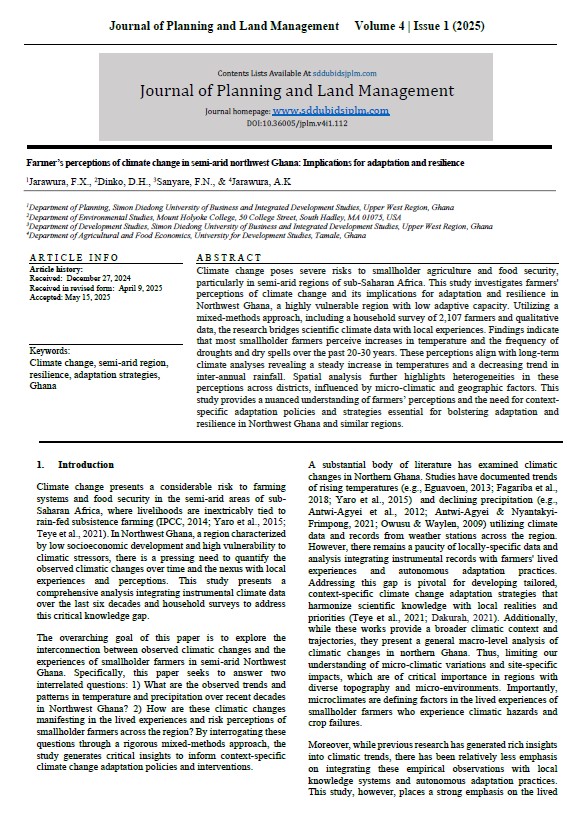Farmer’s perceptions of climate change in semi-arid northwest Ghana: Implications for adaptation and resilience
DOI:
https://doi.org/10.36005/jplm.v4i1.112Keywords:
climate change, semi-arid region, resilience, adaptation strategies, GhanaAbstract
Climate change poses severe risks to smallholder agriculture and food security, particularly in semi-arid regions of sub-Saharan Africa. This study investigates farmers' perceptions of climate change and its implications for adaptation and resilience in Northwest Ghana, a highly vulnerable region with low adaptive capacity. Utilizing a mixed-methods approach, including a household survey of 2,107 farmers and qualitative data, the research bridges scientific climate data with local experiences. Findings indicate that most smallholder farmers perceive increases in temperature and the frequency of droughts and dry spells over the past 20-30 years. These perceptions align with long-term climate analyses revealing a steady increase in temperatures and a decreasing trend in inter-annual rainfall. Spatial analysis further highlights heterogeneities in these perceptions across districts, influenced by micro-climatic and geographic factors. This study provides a nuanced understanding of farmers’ perceptions and the need for context-specific adaptation policies and strategies essential for bolstering adaptation and resilience in Northwest Ghana and similar regions.
Downloads

Downloads
Published
How to Cite
Issue
Section
License
Copyright (c) 2025 Journal of Planning and Land Management

This work is licensed under a Creative Commons Attribution-NonCommercial 4.0 International License.








